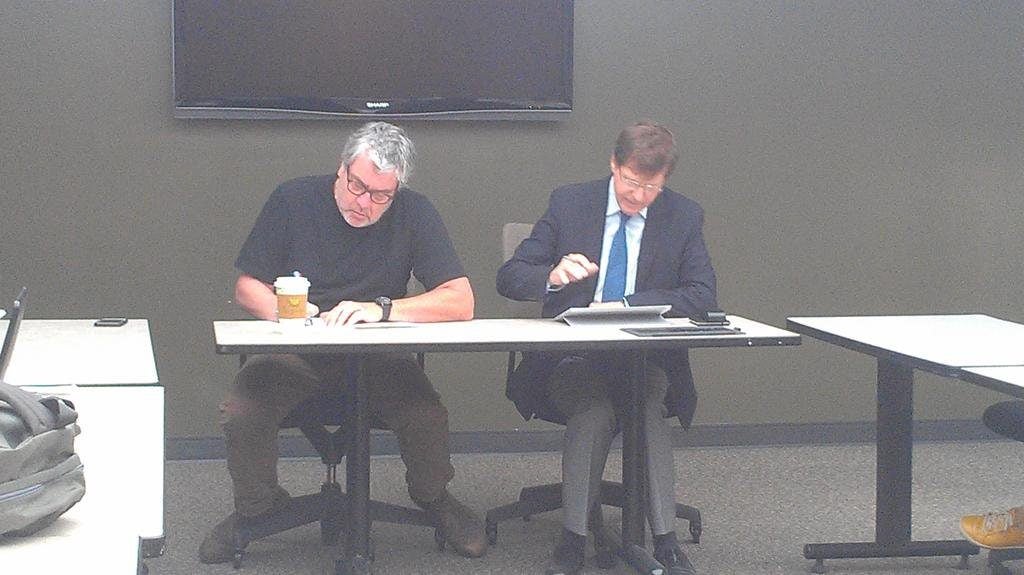
Until this round of bargaining, taking pictures of the employer (during and outside of bargaining) has never been a problem. Here is Barry Miller and Rob Lawson, shared on Twitter in 2015.
Threatening CUPE 3903 members for expressing themselves about union matters is completely unacceptable. Similarly unacceptable is the fact that this needs to be stated at all.
On Monday, November 13, the York University bargaining team walked into our bargaining meeting and immediately started berating the bargaining team (BT) about pictures of the employer’s team shared on Twitter.
The BT and executive committee members present had no idea what they were talking about. While our own account is often critical of York’s team, we have not shared pictures of their bargaining team following a conversation on that exact topic on October 16. The agreement that pictures of the employer’s bargaining team would not be shared was already a major concession to the employer’s restrictive definition of respect. In previous rounds, pictures were common and there were no complaints.
It was eventually clarified that they were upset that rank and file members had tweeted picture(s) of them at a previous meeting. It is ludicrous for the employer to suggest that the union can or should control what individual members are sharing on social media.
The union’s BT members take their positions seriously and do not appreciate derailing of discussions on the table (as outlined in the agenda sent in advance to the employer, as established on opening day). If the employer would like to discuss rules of engagement, they are welcome to openly communicate this in advance by adding it as an agenda item. Sidetracking bargaining in this way is designed to exhaust our BT before we even get started.
What is most disturbing about this, however, is the threat which was levelled against our members. The BT clarified once more that open bargaining was part of the protocols approved by the membership. The employer responded with a threat: if the BT was unwilling to somehow prevent individuals from using social media, the employer would take action against those members as either an employment issue (presumably an Article 8 discipline case) or a Student Code of Conduct issue.
This is outrageous. It is bad enough to threaten to discipline someone for utilizing social media in a way that is perfectly legal (there is no reasonable expectation of privacy in a public meeting). The idea of targeting our members, for union activities, through their student status is beyond the pale, as it would strip them of the union representation they would at least be guaranteed in an employment discipline process. Every member of a union should be entitled to protections while working for or talking about their union or their employer. Anything else would be a reprisal.
This tactic is an intimidation power play from our employer. Our bargaining team was not intimidated. The CUPE 3903 BT and Executive Committee will not be telling anyone what they can and can’t tweet or otherwise share on social media. But we do commit to defend any member who is unfairly targeted by our employer, to the fullest of our capacities.
